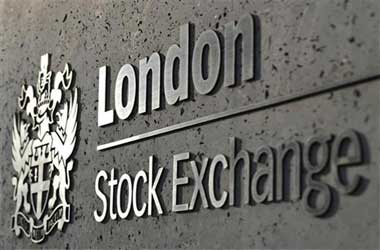
On Thursday, the Bank of England reduced growth forecasts for the UK economy, saying that the outlook remained highly sensitive to the effects of Brexit, as policymakers left the key interest rate and bond purchases unchanged.
The central bank said “UK economic growth slowed in late 2018 and appears to have weakened further in early 2019. This slowdown mainly reflects softer activity abroad and the greater effects from Brexit uncertainties at home.”
The nine-member Monetary Policy Committee, led by Governor Mark Carney, held the bank rate unchanged at 0.75% in line with the expectations of economists. The previous change in the bank rate was a quarter-point increase in August and the rate has now reached its highest since 2009.
The stock of purchases of corporate bonds was held at 10 billion GBP and purchases of government bonds at 435 billion GBP. Both decision-making was unanimous. The bank lowered its growth forecast for this year to 1.2%, the slowest rate in a decade, from 1.7% forecast in November, in its latest Inflation Report released Thursday.
That was the biggest cut since the 2016 referendum in the projection. Growth projections for 2020 have also been reduced to 1.5%, while the outlook for 2021 has been increased to 1.9%. Both years ‘ previous forecast was 1.7 percent. Since the November meeting of the Committee, Brexit uncertainties have intensified significantly, the bank reiterated.
Regarding the impact of Brexit, BoE Governor Carney said “The fog of Brexit is causing short term volatility in the economic data, and more fundamentally, it is creating a series of tensions in the economy, tensions for business.”
The bank cited evidence of the continued increase in Brexit uncertainty that weighs on business housing activity and investment.
In spite of the devastating impact of Brexit, the central bank said “were the economy to develop broadly in line with its Inflation Report projections, an ongoing tightening of monetary policy over the forecast period, at a gradual pace and to a limited extent, would be appropriate to return inflation sustainably to the 2 percent target at a conventional horizon.”
The bank noted that market expectations for the Bank Rate path have fallen, and markets are now seeing a gradual increase in the rate to about 1.1% by the end of 2021 compared to 1.4% in November. The United Kingdom is scheduled to leave the European Union on 29 March, but Prime Minister Theresa May still has to figure out how this will happen-whether the country will leave the bloc with a deal on trade and other important issues or leave without any arrangements.
The central bank warned earlier that a Brexit no-deal would cause a severe recession in the United Kingdom, which was not even seen in the global financial crisis a decade ago. The central bank ‘s analysis projected that inflation could hit 6.5% as the pound dives in a Brexit no-deal or disorderly. Governor Carney also predicted that food prices could rise by as much as 10% if the pound slumped by a no-deal Brexit by 25%.




